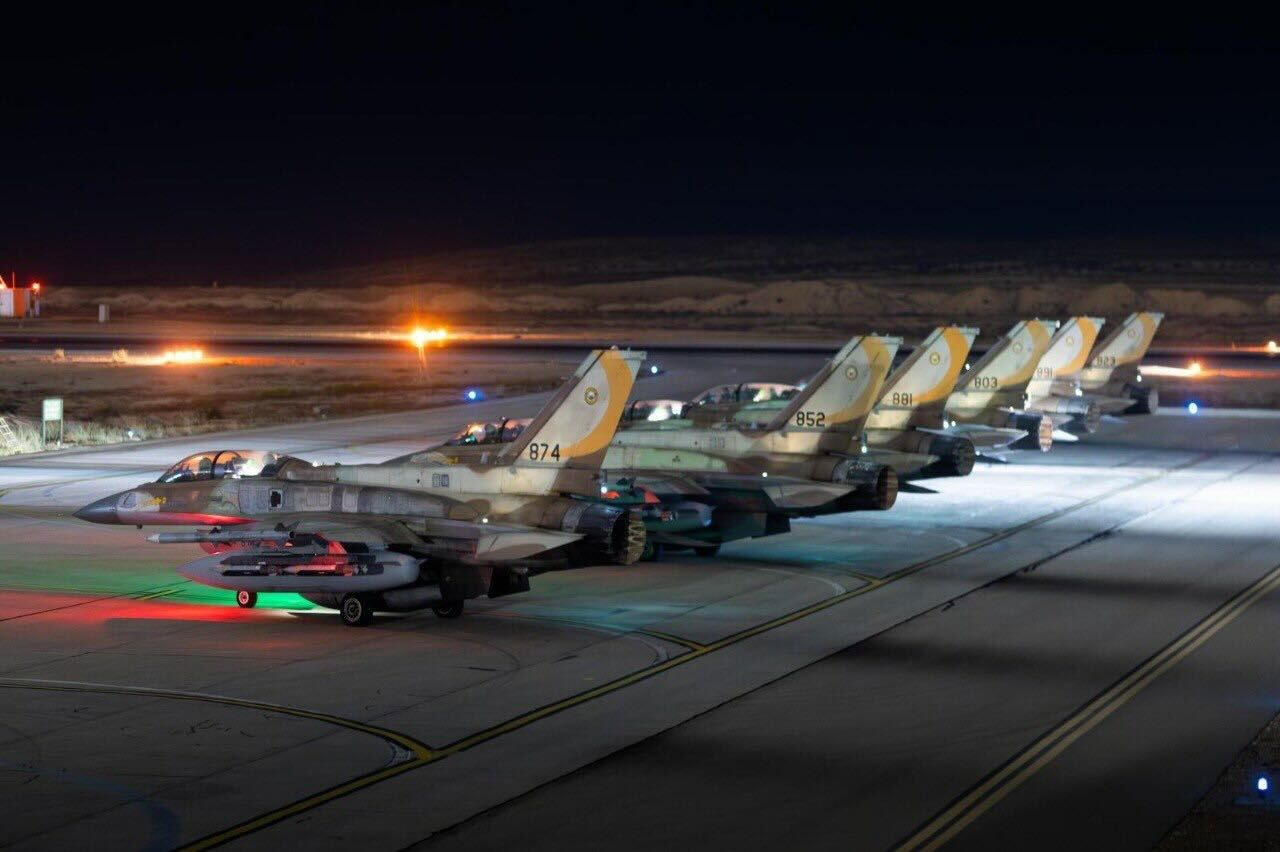Imagery released by the Israeli military on Friday showed American-made F-35, F-15 and F-16 fighter jets were involved in the airstrikes on Iran.
Israel said 200 fighter aircraft participated in the strikes on Iran’s nuclear sites, military sites and military leadership, using 330 munitions.
The 200 Israeli warplanes used make up almost 60% of the country’s combat-capable aircraft, according to statistics in the “Military Balance 2025,” published by the International Institute for Strategic Studies (IISS).

The US has long been Israel’s primary weapons supplier. The warplanes represent the breadth of US firepower, and all are in service with US forces as well as Israel’s.
The stealthy fifth-generation F-35 jets, made by Lockheed Martin, are the most modern in Israel’s fleet, and it operates 39 of them, according to the IISS statistics.
Israel has 75 of various models of the twin-jet F-15s, first made by McDonnell Douglas (now part of Boeing) in its inventory, and almost 200 units of a range of F-16 models, originally made by General Dynamics and now Lockheed Martin, according to the IISS.
Countries around the world respond to Israel’s strikes on Iran
From CNN’s Jessie Yeung
Countries around the world are reacting to Israel’s strikes on Iran, with several voicing alarm and others criticizing the move.
US Secretary of State Marco Rubio has said the US was not involved in Israel’s strikes, adding in a statement that “our top priority is protecting American forces in the region.”
Saudi Arabia’s Foreign Ministry said the “blatant Israeli aggression” undermines Iran’s “sovereignty and security and constitute a clear violation of international laws and norms.”
Lebanon’s President Joseph Aoun said Israel’s attacks “targeted all ongoing efforts and initiatives towards stability in the region.” Prime Minister Nawaf Salam called the attack a “flagrant violation of international law and Iranian sovereignty.”
India’s Ministry of External Affairs spokesperson said the country was “closely monitoring the evolving situation, including reports related to attacks on nuclear sites,” and urged both sides to avoid escalation. He said India had “close and friendly” relations with both Israel and Iran.
Oman’s sultanate called the attack “a dangerous escalation and a blatant violation of the United Nations Charter and the principles of international law.”
Britain’s Prime Minister Keir Starmer said “Stability in the Middle East must be the priority and we are engaging partners to de-escalate.”
Pakistan’s Foreign Ministry said it condemned Israel’s attacks, which “clearly contravene the UN Charter and fundamental principles of international law.” The ministry said: “Pakistan stands in resolute solidarity with the people of Iran.”
Qatar’s Ministry of Foreign Affairs called the strikes a “dangerous escalation” and called on the international community to “put an end to these Israeli violations.”
The United Arab Emirates’ Foreign Ministry called on the UN Security Council to “take urgent and necessary measures to achieve a ceasefire.”
China’s embassy in Iran called the situation in Iran “severe and complex,” urging Chinese citizens in the country to step up their own security precautions.
New Zealand Prime Minister Christopher Luxon warned that “the risk of miscalculation is high.”
Australia’s Foreign Minister Penny Wong said that Canberra was “alarmed” by the escalation. She urged all parties to prioritize dialogue and diplomacy, saying: “This risks further destabilizing a region that is already volatile.”
Stay ahead with the latest updates!
Join The Podium Media on WhatsApp for real-time news alerts, breaking stories, and exclusive content delivered straight to your phone. Don’t miss a headline — subscribe now!
Chat with Us on WhatsApp







